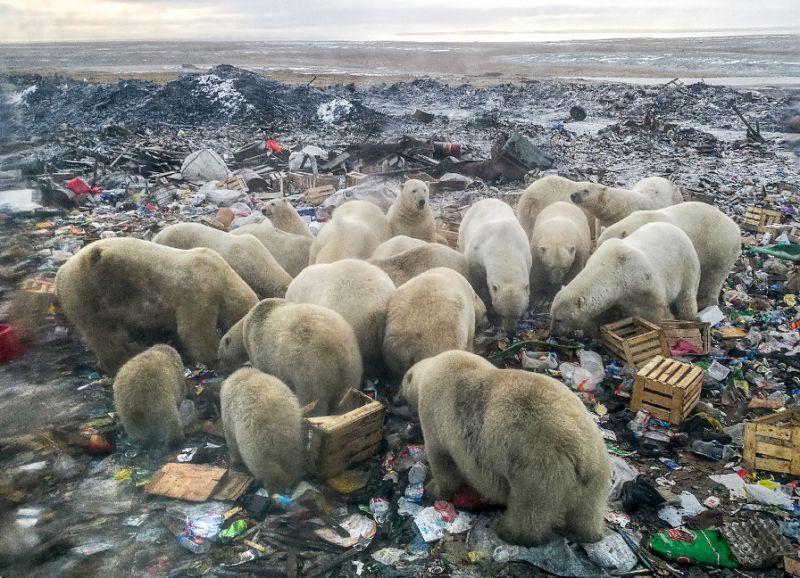A month after 50 polar bears fled to Belyushya Guba, a village on the far northern Novaya Zemlya archipelago, Russia’s future plans of developing the place would just add to the animals’ climate problems.
Polar bear experts explained the polar bears approached the village, explored the streets, and feasted on food waste, because of the late freezing of the sea. Climate change has kept them from hunting seals so they looked for alternate food sources.

Though local authorities have declared a state of emergency for a week, Russia continues to increase its footprint in the Arctic and pursue energy projects, Northern Passage navigation and strategic military interests, according to a report by AFP.
“Development in the Arctic will definitely increase conflict with humans, especially now that the polar bear is losing its life platform in several regions and coming ashore,” biologist Anatoly Kochnev, who studied polar bears in the Arctic since the 1980s, told AFP.
Polar Bears International reported that bears in Barents Sea, which is one of the two islands in Novaya Zemlya, are experiencing the fastest ice reduction after losing 20 weeks of ice a year over the last few decades.
“Ice monitoring shows that previously, ice near Belushya Guba formed in December,” Ilya Mordvintsev, one of the scientists from Severtsov Institute in Moscow, told AFP. “For thousands of years, they migrated this time of year to hunt seals. This year they came to the shore and there was no ice.”

Novaya Zemlya is currently a restricted territory, ever since it’s been made as a Soviet-era nuclear weapons testing site. The military even built new building and an aerodrome after the hiatus. A new port is also under construction, followed by other plans to mine the giant Pavlovskoye lead and zinc deposit.
There’s also plans of Moscow to develop the Northern Passage, which Russian president Vladimir Putin said would become an alternate trade route to Asia. This project could also pose a great problem for polar bears in the region.
“Constant use of icebreakers through ice where seals give birth affects populations of seals,” Kochnev added.
Kochnev said that if warming continues, they “will simply leave Russia” or if it continues for another two to three weeks, the animals might migrate to Canada.





